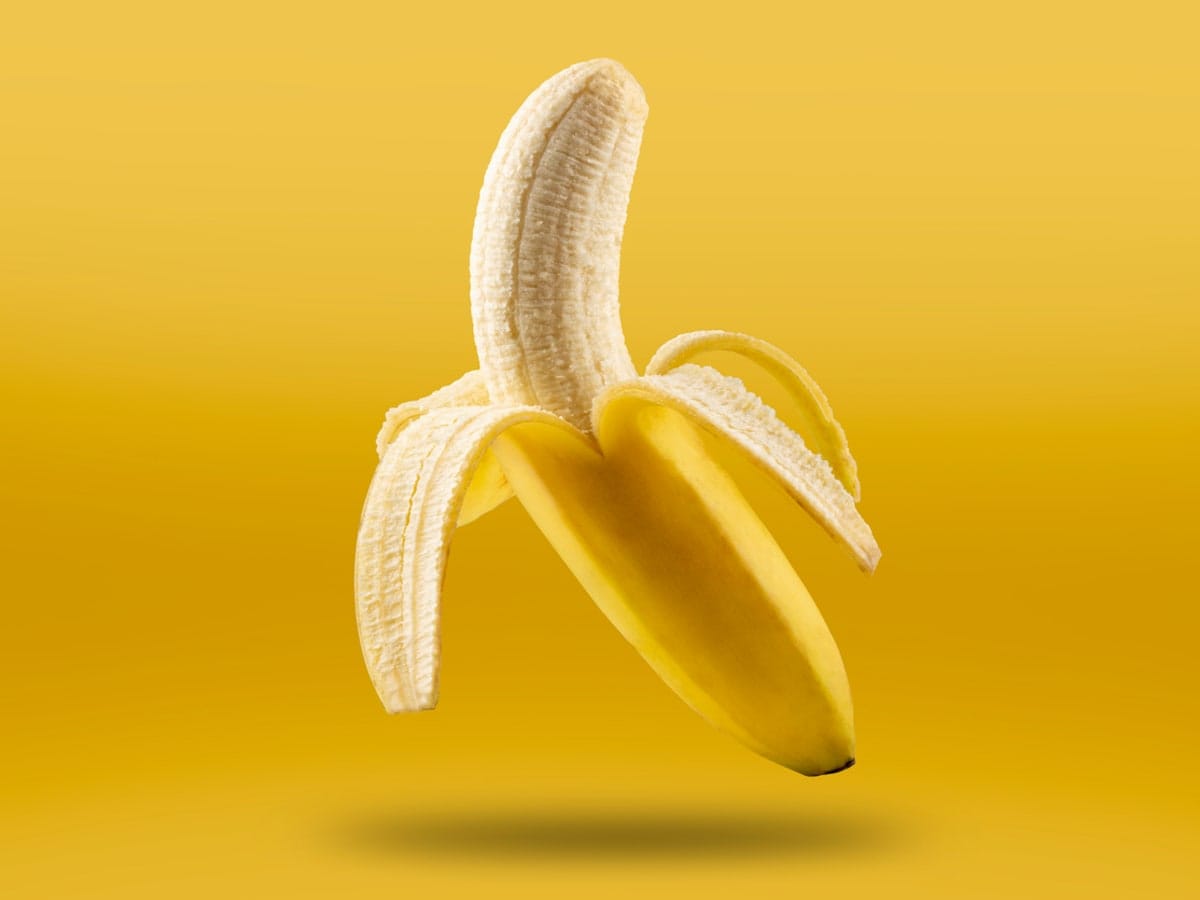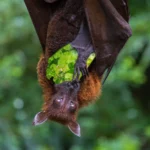Ever wondered what animals besides humans love bananas? We’re about to take you on a wild and fascinating trip through the animal kingdom, where we’ll uncover the secret banana lovers. Get ready to meet monkeys, bats, and other furry (or not-so-furry) friends who can’t resist the sweet taste and goodness of bananas! We’ll dig into why they’re so crazy about this tropical fruit, what makes them so healthy for them, and even answer the burning question: are banana peels worth a second glance? Let’s dive into the juicy world of bananas and the animals that go bananas for them!
What Animals Eat Bananas?
Hey there, food enthusiasts! Bananas, the yellow fruit that’s always a crowd-pleaser, has fans not just among humans, but also furry, feathered, and all sorts of other animals. Let’s dive into the world of animal banana lovers:
Creature Feature:
- Bats: You might think bats only chase bugs, but these nocturnal buddies have a sweet spot for bananas, too!
- Birds: From colorful toucans to tiny hummingbirds, birds of all sizes gather ’round banana trees for a tasty snack.
- Chipmunks: These chipmunks might munch on nuts mostly, but when a ripe banana comes their way, it’s game on!
- Squirrels: Squirrels may love their nuts, but they have a soft spot for bananas as well.
- Raccoons: These masked bandits are known for being food scavengers, and bananas definitely make their list of favorites.
- Rabbits: These fluffy herbivores love munching on banana peels, but they’ll devour the sweet fruit inside too.
- Elephants: Who knew these gentle giants have a sweet tooth? They munch on bananas as part of their plant-loving diet.
- Rats: These little guys are omnivores, meaning they’ll eat pretty much anything. Bananas? Yum!
- Gorillas: These primates prefer plants, but they won’t say no to a sweet banana every now and then.
- Ants: Even teeny-tiny ants can’t resist the sugary goodness of bananas.
- Sloths: You wouldn’t think slow-moving sloths would be into bananas, but if one crosses their path, they’ll take a bite.
Banana Power:
So, what makes bananas such a hit with all these animals? It’s all about those essential nutrients:
- Potassium: Great for keeping your heart and muscles healthy.
- Vitamin C: Boosts immunity and keeps your skin glowing.
- Dietary fiber: Keeps you feeling full and supports digestion.
- Sugars: Quick energy source that animals love.
Fun Fact:
Guess what? Not just monkeys, humans are also primates! So, if you love bananas, you’re in good company. Next time you grab a peel, take a moment to appreciate the diverse range of animals who share your banana passion.
If you’re curious to know which animals in the rainforest enjoy bananas as a delightful treat, be sure to click on the provided link and discover the fascinating world of banana-loving creatures.
Ever wondered which wild animals indulge in the sweet delight of bananas? Click on the provided link to embark on an exciting journey and uncover the intriguing dietary habits of these fascinating creatures.
Why Are Bananas a Popular Food for Animals?
Are you curious why bananas are a go-to treat for many animals? Dive in to discover the reasons that make bananas an all-time favorite!
Bananas are a nutritional powerhouse, packed with nutrients like potassium, fiber, vitamins, and natural sugars. Potassium is essential for muscles and balance, fiber supports digestion, and vitamins help with brain development and immunity. It’s like a vitamin-packed energy bar made by nature!
But what makes bananas really stand out is their accessibility and versatility. They’re easy to find in many parts of the world, making them convenient for animals to snack on. Plus, they can be eaten raw, mashed, or even used to make boozy treats (not for animals, of course!).
Animal-Friendly Benefits:
- Nutrient-rich: Packed with potassium, fiber, vitamins, and sugars
- Easily available: Found in many tropical and subtropical areas
- Versatile: Can be eaten raw, cooked, mashed, or fermented
So, the next time you see animals munching on bananas, you can rest assured that they’re not just enjoying a sweet treat but also fueling their furry bodies with the nutrients they need. It’s like a delicious and nutritious reward all in one!
What Nutrients Do Bananas Provide to Animals?
Bananas are like little treasure chests of nutrients that animals love to feast on. These yellow fruits are packed with goodies that keep animals healthy and happy. Let’s take a closer look at what makes bananas so special:
Potassium: The Muscle Mover
Potassium is the star player when it comes to keeping your furry friend’s muscles, nerves, and body fluids in tip-top shape. It’s like the traffic controller in their bodies, making sure everything works smoothly and doesn’t get all jumbled up.
Fiber: The Digestive Superhero
Fiber is the secret ingredient that helps animals stay regular and feeling full. It’s like a tiny brush that sweeps through their digestive systems, keeping everything moving smoothly. Plus, it’s a good friend to the gut bacteria, giving them something to munch on and keep them healthy.
Vitamin B6: The Energy Booster
Vitamin B6 is like the spark plug that gets animals moving. It helps their bodies break down protein and make energy, so they can keep up with all their adventures. It also keeps their brains sharp and their immune systems strong.
Natural Sugars: The Energy Fuel
When animals need a quick boost, the natural sugars in bananas come to the rescue. These sugars are like little energy packets that give them the get-up-and-go they need to chase squirrels or pounce on toys.
Key Points to Remember
- Bananas are like a bag of treats for animals, filled with nutrients that keep them healthy and strong.
- Key nutrients include potassium, fiber, vitamin B6, and natural sugars.
- These nutrients help with a variety of bodily functions, like keeping muscles working, digestion moving, energy flowing, and everything in balance.
So, there you have it. Bananas aren’t just a delicious snack for humans, they’re a nutritional powerhouse for animals too!
Can Animals Eat Banana Peels? A Comprehensive Guide
When it comes to our beloved furry companions and wildlife neighbors, the question of whether banana peels are safe for them to munch on is a common one. Let’s dive into the world of animal nutrition and find out!
Banana Peel Decomposers: The Animal Club
Similar to how humans have different digestive systems, animals possess unique digestive capabilities. Some animals are gifted with the ability to break down banana peels, while others may struggle with their cellulose content. Here’s a closer look:
- Primates: These curious creatures, including monkeys, apes, and even us humans, have digestive systems that can handle banana peels.
- Livestock: Cows, pigs, and poultry can find nourishment in banana peels as part of their balanced diet.
- Wildlife: Deer, skunks, and other plant-eating animals can also enjoy the occasional banana peel treat.
- Insects: Tiny but mighty, ants, beetles, and their insect friends have the remarkable ability to digest cellulose, making banana peels a tasty snack for them.
The Benefits of Banana Peels for Animals:
- Nutritional Powerhouse: Banana peels are brimming with potassium, vitamin B6, and fiber, providing a boost of essential nutrients.
- Digestive Helper: The fiber in banana peels acts as a gentle digestive aid, preventing constipation and promoting regularity.
- Energy Booster: The natural sugars present in banana peels offer a quick energy source for active animals.
The Drawbacks of Banana Peels for Animals:
- Digestive Challenges: Dogs and cats, for example, may experience tummy troubles due to the difficulty in digesting the cellulose in banana peels.
- Pesticide Concerns: Occasionally, banana peels may harbor pesticide residues, which can be harmful to animals if consumed in excessive amounts.
Feeding Tips and Safety Precautions:
Remember, while banana peels can be a nutritious addition to animal diets, they should never be the sole source of nutrition. It’s crucial to provide a balanced meal plan that meets each animal’s specific needs.
Always wash banana peels thoroughly before offering them to your furry friends. This removes any surface dirt or debris.
Monitor your animals closely when they consume banana peels to ensure they do not experience any digestive distress.
If you have any concerns about feeding banana peels to your beloved companions, always consult with your veterinarian for personalized advice.
By understanding the nutritional benefits and potential drawbacks of banana peels, you can make informed decisions about whether to include them in your animal’s diet. So, go ahead, peel off a banana and share it with your furry companions, in moderation of course! Together, we can ensure the well-being and happiness of our animal friends.
FAQ
Q1: What animals can eat bananas?
A1: A variety of animals can eat bananas, including monkeys, apes, lemurs, elephants, bats, chipmunks, rats, ants, deer, skunks, tigers, cougars, lions, mice, squirrels, fruit bats, and birds.
Q2: Why are bananas a popular food for animals?
A2: Bananas are a popular food for animals because they are nutritious and accessible. They are a good source of energy and provide essential nutrients like potassium, fiber, vitamin B6, and natural sugars.
Q3: What nutrients do bananas provide to animals?
A3: Bananas provide animals with essential nutrients like potassium, fiber, vitamin B6, and natural sugars. Potassium is important for muscle function and nerve transmission, fiber aids in digestion, vitamin B6 is crucial for brain development and function, and natural sugars provide energy.
Q4: Can animals eat banana peels?
A4: Some animals can eat banana peels, including primates, livestock, wildlife, and insects. Banana peels are nutritious, containing fiber, potassium, vitamin B6, and natural sugars. However, some animals may have difficulty digesting the cellulose in banana peels.
Q5: How do animals benefit from eating bananas?
A5: Animals benefit from eating bananas due to their nutritional value. Bananas provide essential nutrients like potassium, fiber, and vitamins, which contribute to overall health and well-being. The energy provided by the natural sugars in bananas can also be beneficial for active animals.
- Star Ring Trends: Etsy vs Amazon - March 28, 2025
- Boost Pollinator Habitats: Baby Blue Eyes Sustainable Farming Guide - March 28, 2025
- Protect Big Black Bears: Effective Conservation Strategies - March 28, 2025
















